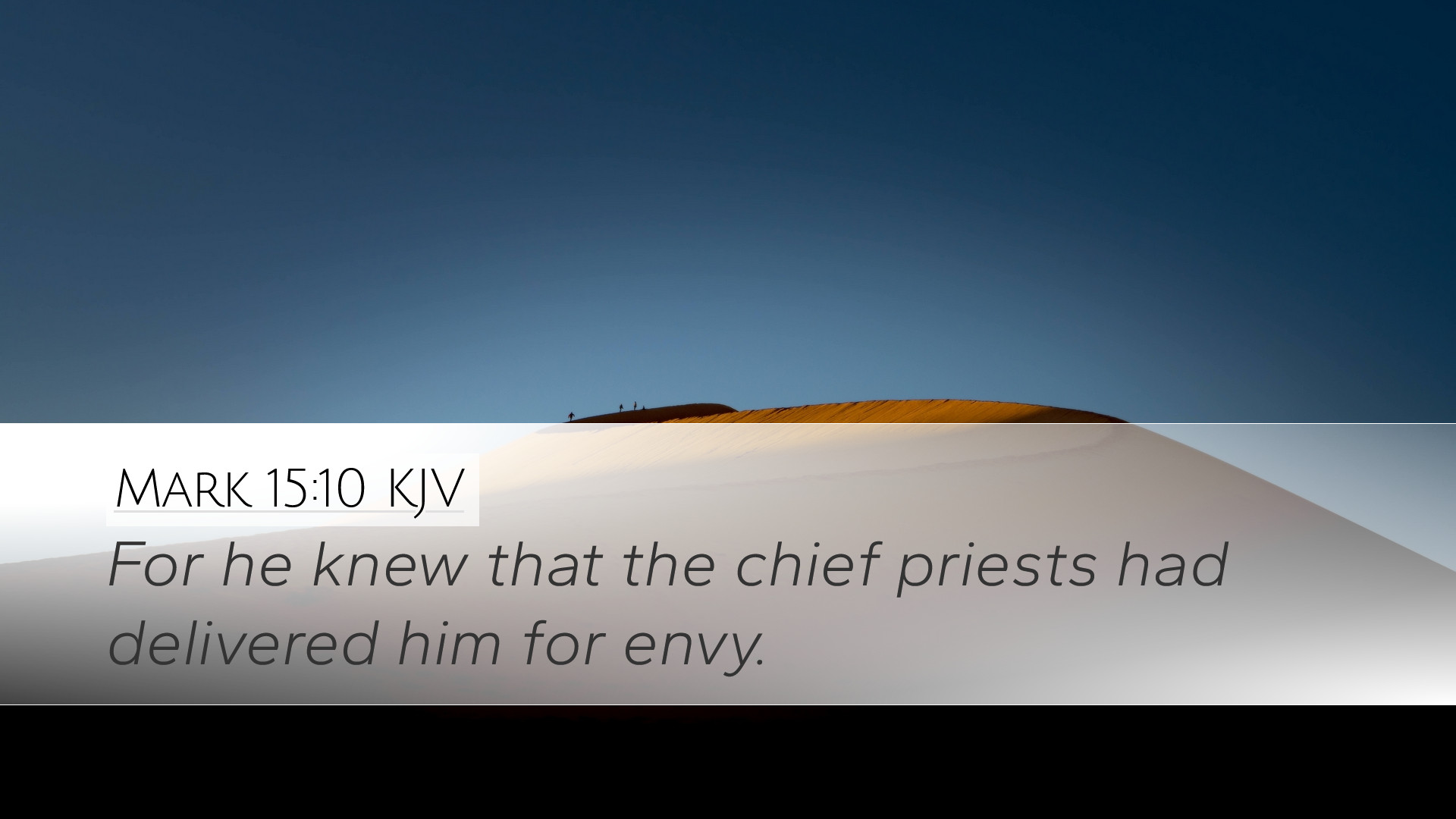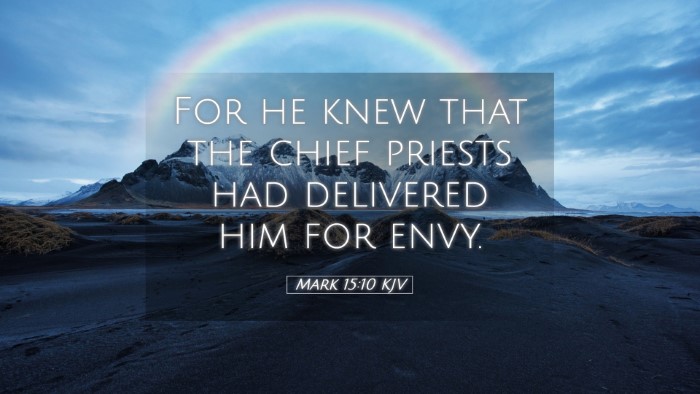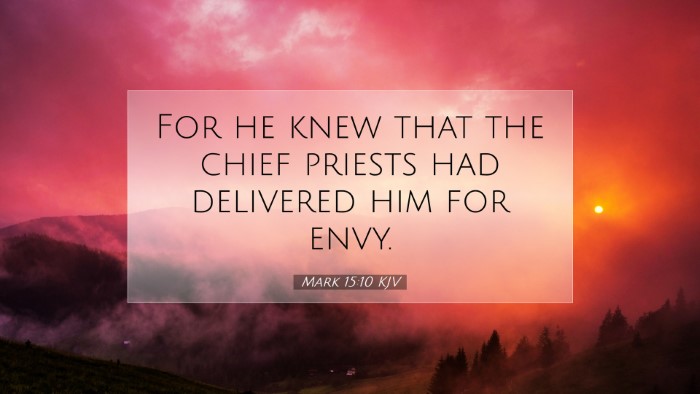Commentary on Mark 15:10
Verse Text: "For he knew that the chief priests had delivered him for envy."
Introduction
Mark 15:10 presents a critical moment in the Passion narrative, reflecting the motivations behind the betrayal of Jesus by civil and religious authorities. Understanding this verse helps in grasping the context of Jesus' suffering and the dynamics of envy and power that shaped these events.
Insights from Commentaries
Matthew Henry's Commentary
Human Motive and Malice: Matthew Henry emphasizes the role of human motives, particularly envy, in the actions of the chief priests. This insight sheds light on the broader theological theme of how sin can corrupt judgment and lead to injustice. The envious hearts of the religious leaders drove them to seek the death of a man whose teachings exposed their hypocrisy and threatened their authority.
Albert Barnes' Notes on the Bible
Recognition of Injustice: Albert Barnes notes that Pilate recognized the injustice in the charges against Jesus. His acknowledgment of the true reason behind the chief priests' actions speaks to the moral clarity that can sometimes emerge even in the governmental figures of authority. The verse demonstrates that even secular leaders can understand the corrupt motives of those in religious power.
The Envy of the Chief Priests: Barnes further elaborates on the nature of the envy expressed by the chief priests. Their jealousy stemmed from Jesus’ popularity among the people, His miraculous works, and His profound teachings, which contrasted sharply with their own. This envy led them to conspire against Him, and they sought the most unjust means to eliminate Him.
Adam Clarke's Commentary
Context in the Narrative: Adam Clarke places this verse within the larger narrative of Jesus’ trial and the political dynamics of the time. He discusses how the religious leaders portrayed Jesus as a political threat, fearing that He would incite rebellion against Roman rule. Clarke highlights the irony of their fear—they were more concerned about their own power than the truth and the spiritual implications of their actions.
Theological Implications: Clarke further reflects on the theological implications, suggesting that the account demonstrates how human envy can lead to significant spiritual tragedies. The very leaders who were called to shepherd the people were instead feeding their jealousy, leading them to commit a grave injustice. This points to the pervasive nature of sin that leads people to betray their own principles for selfish gains.
Theological Themes
- Envy as a Sin: The verse highlights envy as a destructive emotion that can lead to grave errors in judgment and action. It serves as a warning against allowing jealousy to influence our behaviors and decisions.
- Injustice in Human Institutions: Mark 15:10 captures the reality of injustice within religious and political institutions. It calls for a critical examination of how power can corrupt and how leaders may act contrary to their stated missions.
- The Nature of True Authority: The juxtaposition of Jesus’ authority against that of the religious leaders invites a deeper discussion on what it means to be a true leader. Jesus displayed servant leadership, contrasting sharply with the self-serving ambition of the chief priests.
Conclusion
Mark 15:10 is more than just a historical account; it serves as a profound reflection on human nature, sin, and the complexities of leadership. The insights drawn from public domain commentaries by Matthew Henry, Albert Barnes, and Adam Clarke provide depth to the understanding of this verse. For pastors, students, theologians, and Bible scholars, it serves as a timely reminder of the call to reflect Christ’s example of humility and righteousness in the face of envy and injustice.


